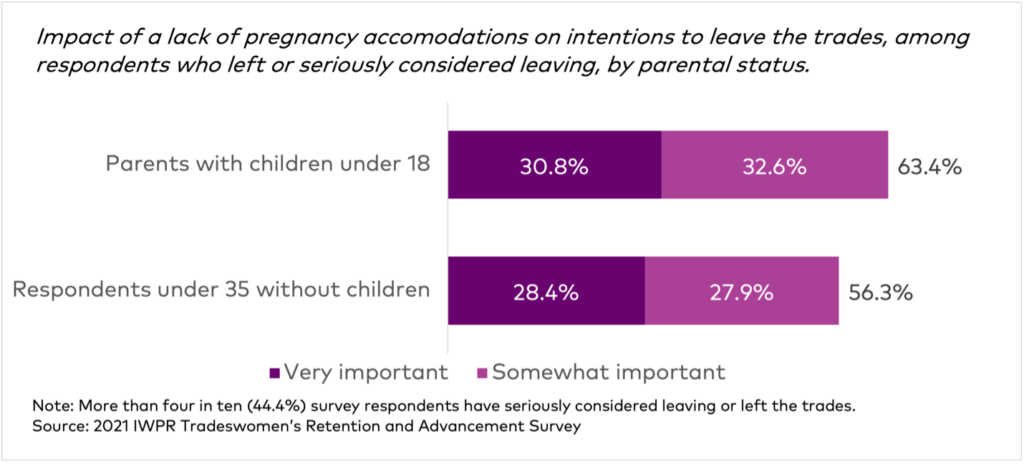Over four decades after the passage of the Pregnancy Discrimination Act of 1978, many pregnant workers still experience discrimination and struggle to get reasonable accommodations that would allow them to maintain employment during their pregnancies.
New research from IWPR highlights how a lack of pregnancy accommodations harms employers, the economy, and workers’ economic security. IWPR’s survey of tradeswomen shows how a lack of pregnancy accommodations is a factor that pushes workers out of construction jobs with family-sustaining wages and benefits. Lack of pregnancy accommodations is cited by more than 60 percent of tradeswomen who are mothers, and well over half of young tradeswomen who do not have children, as an important reason for thinking about leaving the trades (see figure below).
Lack of Pregnancy Accommodations Is Important Reason for Tradeswomen to Consider Leaving Their Jobs

The construction industry already faces difficulties finding enough qualified tradespeople to fill its vacancies. Now, the Bipartisan Infrastructure Law investments are expected to further increase demand by as much as 11 million jobs. The industry cannot afford to push aside half of their potential workforce when it faces such a shortage of skilled workers. To ensure its sustainability, the construction industry can and must work to increase the number of women in the trades. Pregnancy accommodations are a precondition for increasing women’s recruitment and retention in the construction industry and beyond.
The Pregnant Workers Fairness Act would require private employers with more than 15 employees and all public employers to provide reasonable accommodations for pregnant workers. This bill would also close loopholes that make it unduly difficult for pregnant workers seeking redress against discrimination. It would prevent employers from forcing pregnant workers to take paid or unpaid leave if another reasonable accommodation is available and reaffirm pregnant workers’ right to equal employment opportunities and freedom from retaliation based on requests for pregnancy accommodations. The bill passed in the House in May 2021. Then, in August 2021, the relevant U.S. Senate Committee cleared it for a full Senate vote but at the time of writing, the bill still has not been put to the vote in the Senate.


